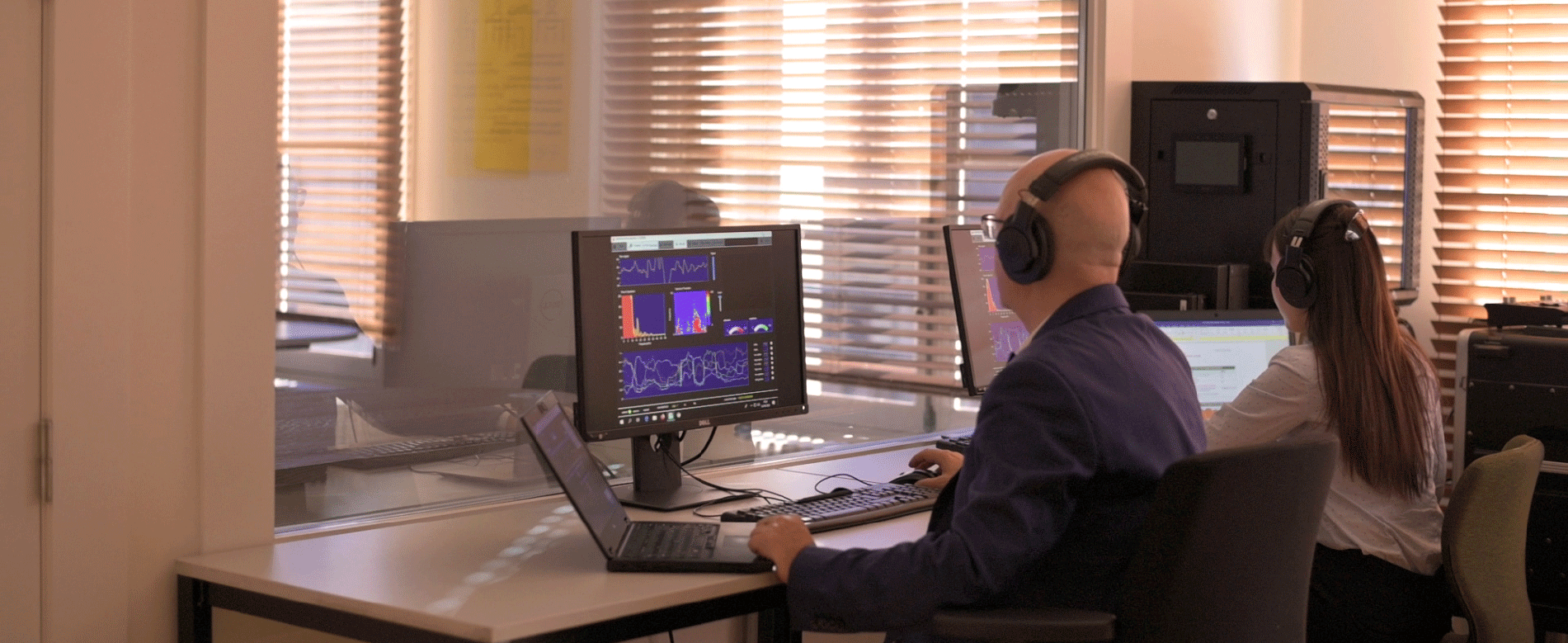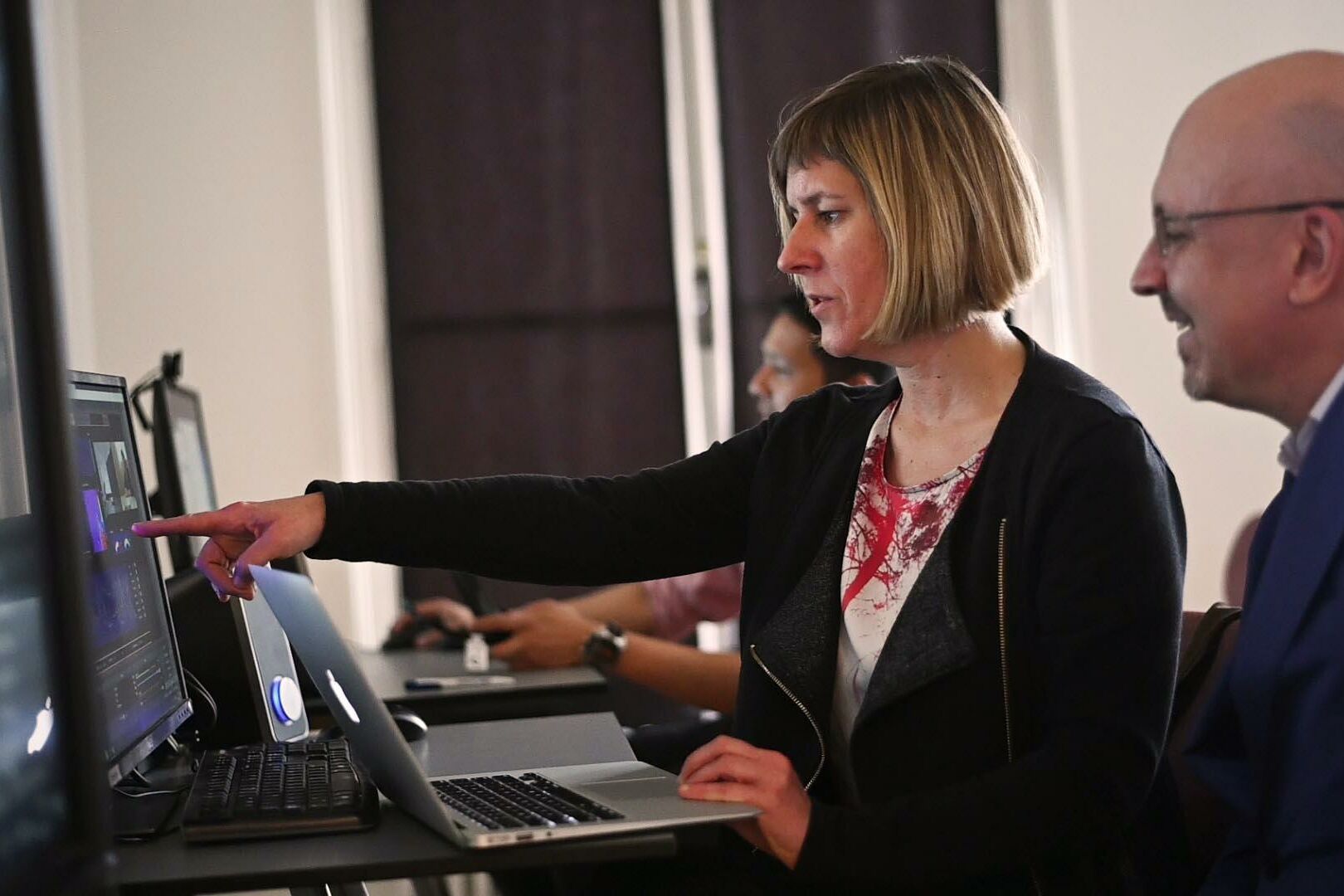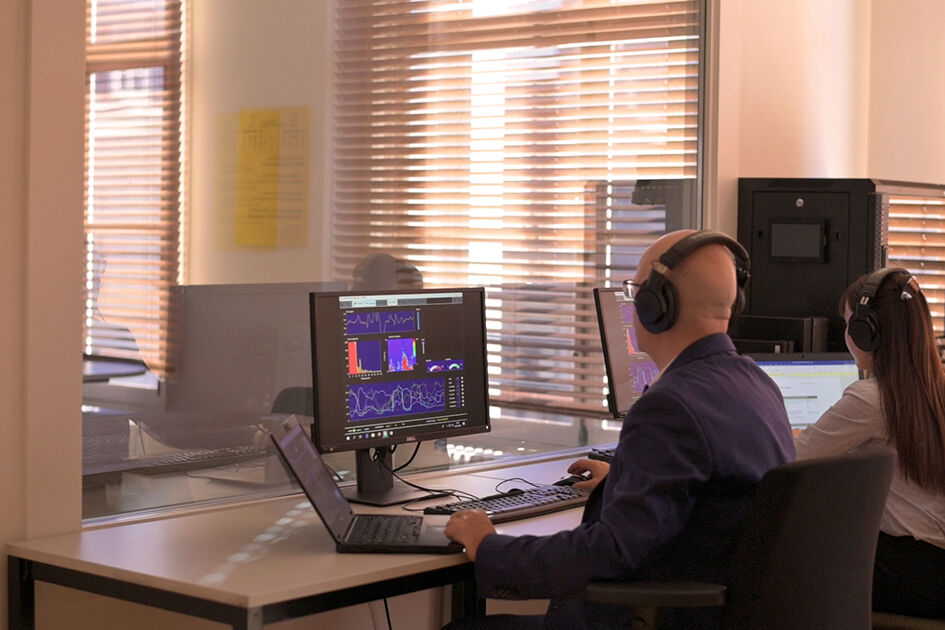
Leading with the brain in mind
Leadership competencies through neurotraining
Improving employee performance, stress resistance and future readiness
Flexibility, productivity, a perfect work-life balance, etc. Organizations are under great pressure today to perform ever better while making sure that their employees feel good at work. The increasing number of burnouts already indicates that this is not easy. And yet, productivity and well-being at work are not necessarily mutually exclusive, on the contrary: they can reinforce each other. And all this thanks to neurotraining.
Neurotraining is based on the principle of brain plasticity: we can train our brain and change our way of thinking. Thanks to neurotraining we learn to make better, empathic decisions, also, and especially, in times of stress.
Neurotraining is a methodology for the development of leadership competencies, that allows observing leadership behaviors and measuring associated neuro-cognitive activity. Its purpose is to increase EQ, performance and health in professionals by giving contingent, task-based neurofeedback. Participants confront emotionally challenging business situations, interacting with one another and a specially trained actor. Our feedback allows them to test, observe, and improve their responses, arguments, behaviors, and their biometric / EEG activity with underlying leadership competencies.
How it works
At the NeuroTrainingLab™ participants get confronted with a real-life case, such as conflicts between team members. Professional actors will present the case in a realistic way. The supervisors watch how the participants interact under pressure with the actors. Their reactions are also made visible through biometric data. Thus, the participants are given a headset that measures electroencephalographic activity (EEG) and the galvanic reaction of the skin is also monitored, which is an excellent stress sensor.
The combination of the biometric data and the feedback from the supervisors not only gives the participants insight into the what, how and why of their reactions. Above all, they are trained to use these insights and to strengthen their emotional intelligence. It is wrong to think that managers in crisis situations should ignore their emotions, says Steven Poelmans, Professor of Neuroscience & Strategic Leadership: "We learned that whoever eliminates his emotions also suppresses his positive emotions and thus reacts completely differently, while those feelings turn out to be very important in order to be an inspiring leader."

Research on adaptability of employees with partner Acerta

The power of people, that's what hr services group Acerta believes in. Acerta is therefore fully committed to optimizing the human capital of companies. In a rapidly changing world, this is not self-evident: employees need to be increasingly flexible and able to cope with these changes. One characteristic that is gaining in importance as a result is the adaptability of employees. But how do you deal with this as an HR manager? How do you measure this adaptability? Are there factors that stimulate or inhibit it? Can you develop it or do you have to look for specific profiles?
To find an answer to these and other questions, Acerta decided to join forces with the NeuroTrainingLabTM of Antwerp Management School. By measuring biomedical indicators of activity in the human brain, a team will scientifically investigate the adaptability of employees. Based on the results, Acerta will provide tools with which organizations can measure and strengthen this adaptability as an HR factor.
What's in it for you?
-
Experiential “learning-by-doing”, dynamic and engaging.
-
Leadership simulator with typical challenges with real people.
-
Accelerated learning of soft skills through task-based contingent feedback.
-
Development of meta-cognition or the “internal observer” crucial for learning and adaptation.
-
Development of emotional intelligence in terms of recognizing and managing emotions in oneself and others.

Pick your neurotraining track

Masterclass Business Strategy & Leadership
This master class consists of 3 modules: strategy™, digital transformation and strategic leadership & high-performing teams. You can also choose to go through a personal development trajectory in the NeuroTrainingLab. This not only strengthens you as a manager, but also gives your entire management team and/or organization a boost.

Personal leadership programs for companies
AMS has been successfully guiding organizations (often in transformation) from a wide variety of sectors for many years. We have proven that we can create added value in, and are strongly connected to, a wide range of sectors.
During our personal leadership projects we design and implement development projects for leaders, key employees and change managers, so that they are ready for cultural changes or specific behavioral challenges within the organization.
Read more

Neurosciences applied to leadership and coaching
Understanding how the mind and the brain work is fundamental for any professional focused on improving organizational performance and health. It is in this context that the NeuroScience of Leadership (NELA) program can be set.
Neurotraining for better leadership

AMS is watching you: neurotraining for better leadership
End 2019, Prof. Dr. Steven Poelmans installed the first Belgian NeuroTrainingLab™ at Antwerp Management School. In his lab, he teaches business leaders how to make better, empathic decisions, especially in times of stress. “It’s easy to be a leader in times of peace, but it’s difficult to be a leader in times of war.” According to Steven business schools aren’t doing a good job in preparing their students for war.

Developing leadership competencies through neurotraining
What happens in the brains of successful and less successful leaders? Steven Poelmans, professor of neuroscience & strategic leadership, measures their brain activity and combines the results with feedbackfrom observers in real-life and emotionally challenging business situations. This shows that successful leaders can very quickly switch between diametrically opposed leadership styles.


